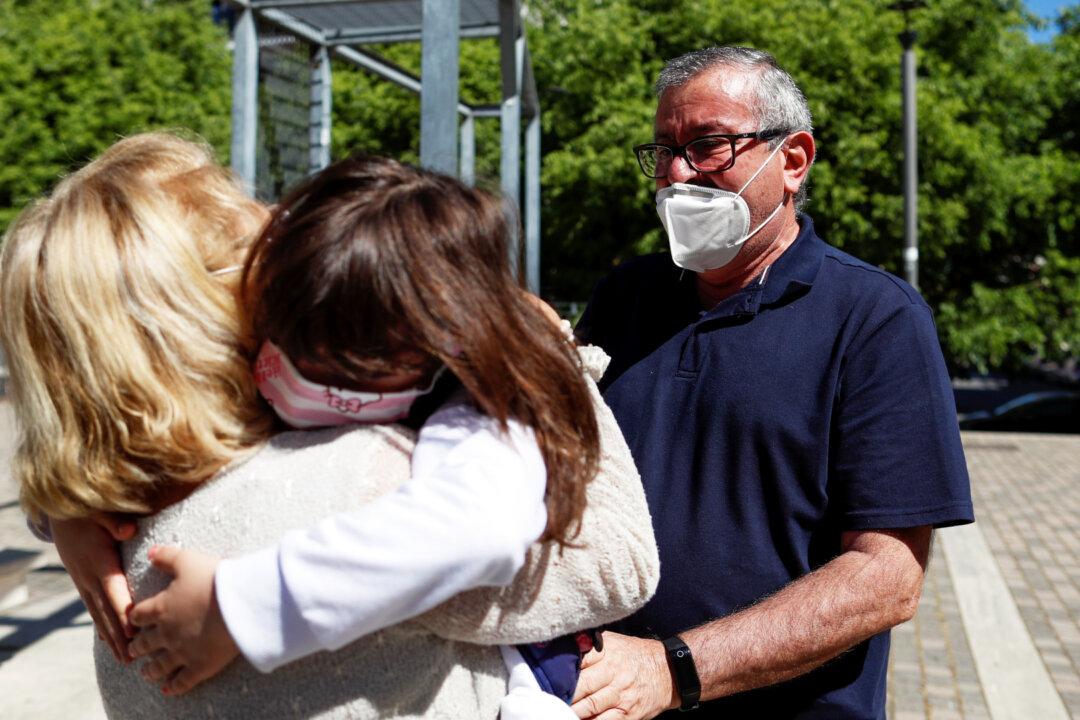ROME— Grandparents hugged their grandchildren, toddlers rushed excitedly through parks, and factories revived their long-stalled production lines as Italy started the slow process of unwinding Europe’s longest CCP virus lockdown.
Nearly two months after ordering Italians to stay home in an effort to slow one of the worst outbreaks of the CCP (Chinese Communist Party) virus, commonly known as the novel coronavirus, the government on May 4 cautiously eased a few restrictions, while keeping many others in place.





